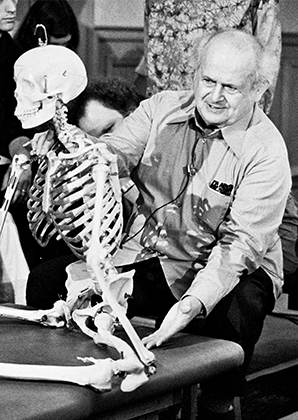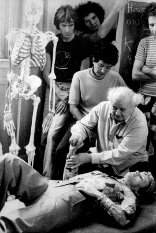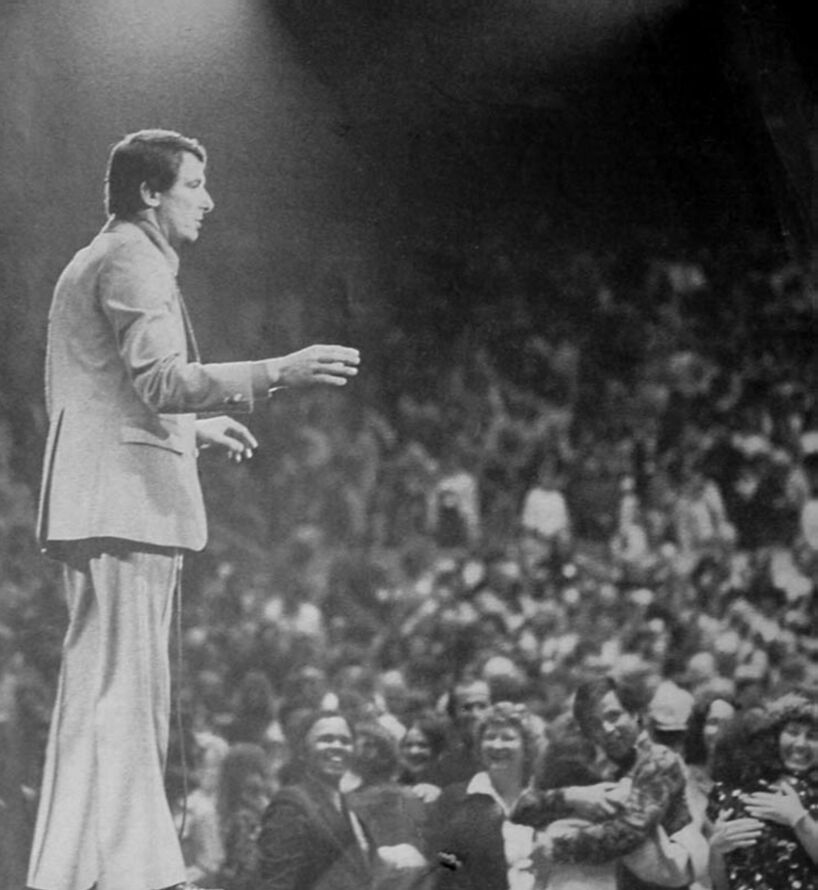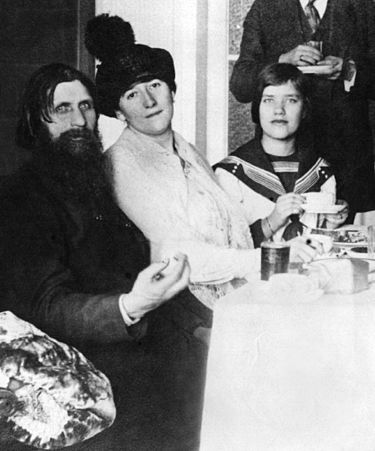We had a pleasant encounter with history last week by taking the daughter of Rasputin, “the mad monk of Russia,” to the Gaslight for a hamburger.
She was in town over the weekend with her friend Patricia Barham, a film and theatre columnist from Los Angeles. While here, they tried and failed to get the apparent Grand Duchess Anastasia to leave her Albemarle County farm for L.A. smog.
The apparent Grand Duchess is, of course, Anna Anderson, the woman who has claimed for 50 years to be the surviving daughter of the last Russian royal family.
If you missed the social news of the summer, Anna moved here from Germany in August and may settle permanently in Albemarle.
Rasputin’s daughter, Maria, has been in the U.S. since 1937 and in Los Angeles since 1965. As was reported during her earlier visit here in August, she came to this country as a circus animal trainer with Ringling Bros.
We learned this trip she was a member of the Hagenbach Brothers animal act, a job she took after several years touring Europe as a Russian folk dancer.
Making a living was a problem for Russian emigres during the 20s and 30s and Maria grabbed at an offer to go on the stage. Girls like Maria who spent their childhood having tea with the Czar’s children every Wednesday weren’t trained to make a living, but Maria had some talent and endless spunk, it appears.
For although Maria was mauled by a bear in Peru, Indiana, she stayed with the circus until the traveling show played Miami, Florida, where she quit and went to work as a riveter in a defense shipyard, she related Saturday night.
She stayed in defense plant work until 1955 when she was laid off because of her age, 66. Since then she has been working in hospitals and baby sitting for friends.
Since credibility gap had yawned intrusively into the conversation, we asked her how she got into the animal training game, and where she got the courage to whip up on lions and tigers. She learned in London, was her unelaborated answer though she noted, ‘After you’ve been the target of a revolution, nothing scares you anymore.’
Gregori Rasputin, her father, was tied in with the Russian royal court as religious advisor.
That lasted until personal enemies decided Rasputin-style religion was going too far and they ended him in a legendary assassination said to involve poisoning, stabbing, and drowning.
Maria said she had it rough in the Bolshevik revolution the year after her father was murdered and eventually left Russia for Berlin, Bucharest, Paris, London, and Miami.
Her English vocabulary isn’t all it might be, she readily admits. She says she speaks Russian best but also German and French. When the time came to write a book – and virtually every notable Russian emigre wrote at least one in the decade 1925-1935 – she dictated her memoirs and the result was, My Father, an anecdotal book on Rasputin published in 1932.
Her friend Pat Barham is in the throws of re-write on a second Rasputin book based on Maria’s recollections. She intends to call it, The Rape of Rasputin and described it as ‘sexsational and exciting’ but not funny.
Maria claims a leaning to be psychic and Pat affirms that on election morning two weeks ago, Maria said that Mrs. Richard Nixon had come to her in a dream and smiled. Maria has ‘signs’ like that often, Pat said.
“Little Mother,” Pat calls Maria for her continual worrying about handbags within reach of strangers in restaurants, suitcases open in hotel rooms, and columnists getting a comfortable chair for interviews.
Since being interviewed is an old game for Rasputin’s only legitimate daughter, she talks willingly and seemingly without reservation. This prompted Gaslight owner John Tuck to volunteer that the father of one of his boyhood chums was one of the band of assassins that did Rasputin in.
‘Why didn’t he like my father?’ Maria asked with genuine curiosity. John didn’t know, or at least didn’t say.
“My father was a kind man,” Maria later said when we returned to her hotel. “Once he was savagely attacked by the most powerful newspaper in Russia. Friends asked why he didn’t close the paper down since he could have done it like this,” she said with a snap of fingers.
“Let them write about me,” her father reportedly said. “Let them make money.” Maria described him as “a kind man who would never have closed the paper.”
Historians may not agree Rasputin was kind but there’s no doubt Maria is thoughtful. “When you leave the hotel, stop at the desk,” she said as the interview closed.
We did and found waiting a pot of white chrysanthemums to carry home through the season’s first snow flurry.•















































_________________________
“Science is wonderful, science is beautiful. Religion is not wonderful, religion is not beautiful.”